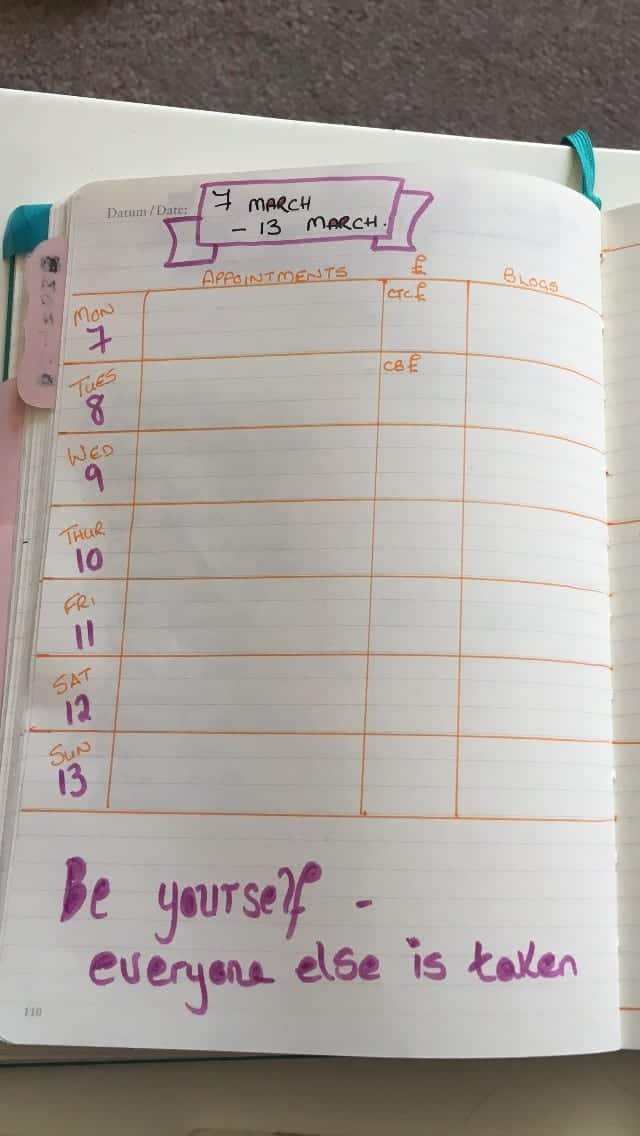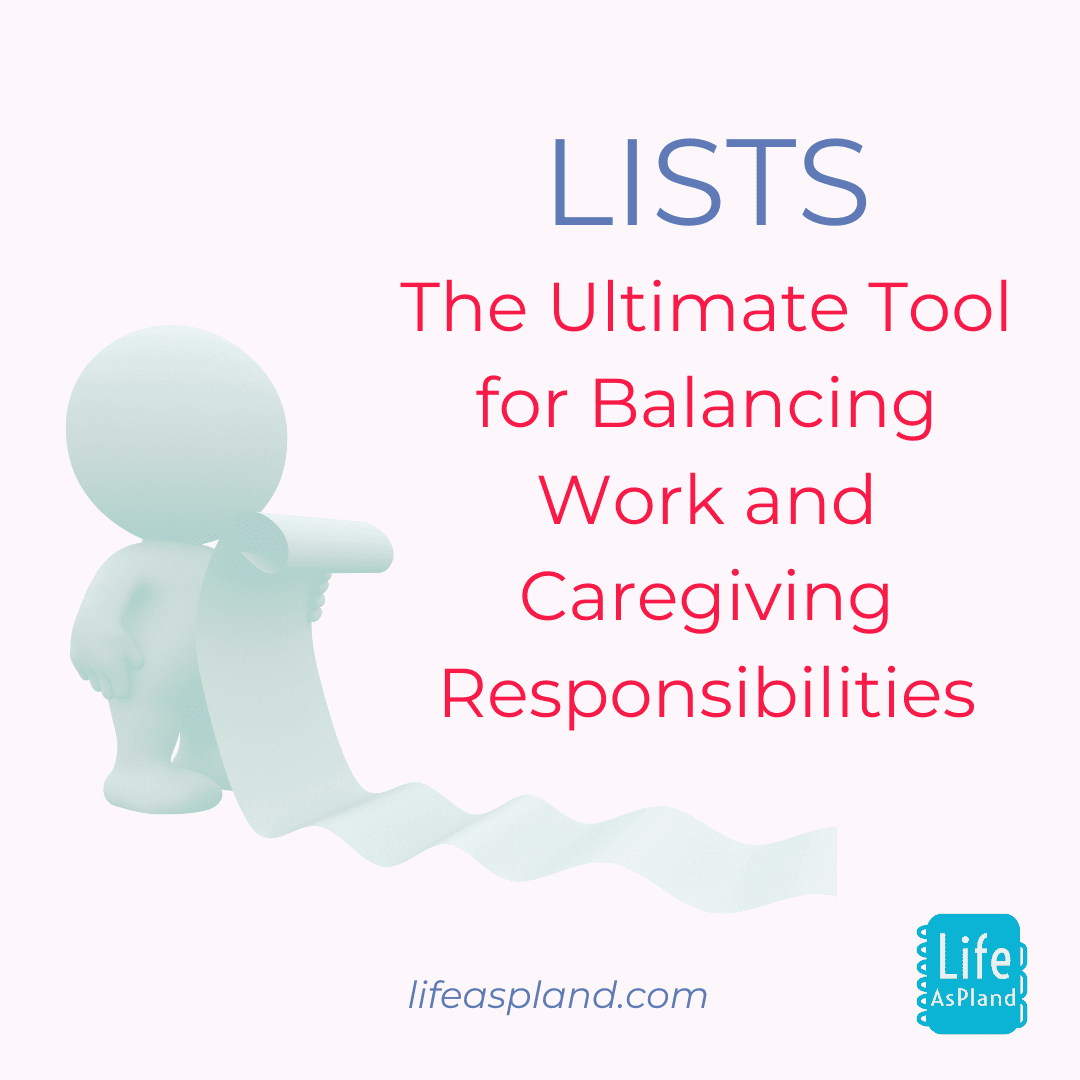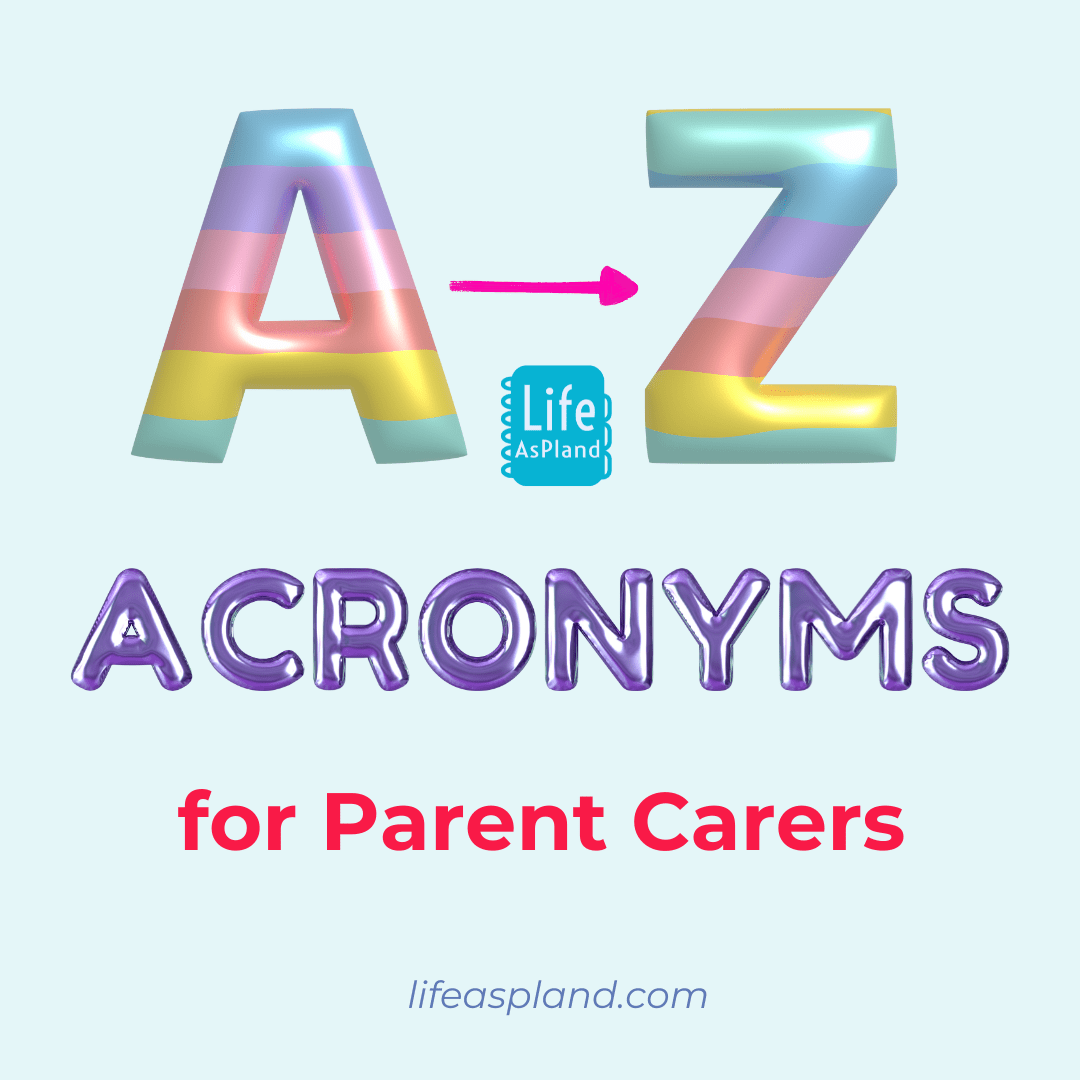The Week Ahead : that place where you have all these ideas of what you will achieve but how often do we achieve what’s on our long to do list? How do you plan for the week ahead?
Since starting with the Bullet Journal concept, I have tried many different ways to not just keep on top of things but to actually get ahead of myself. I want to know that if life happens, as it does when you have children with special educational needs, that I am not having to play catch up. When life happens, and things get put on hold, the last thing I want is the added stress of knowing that I will have to play catch up the following week/month.
So how do I plan?
Initially, there is the all important brain dump. A list of every thing I can think of that I need to do. Phone calls, prescriptions to order, things to buy, birthdays to remember, etc. I update this every month. I look back on the previous month, add the things I haven’t done and then add any new items. As I get older, I really do find that if I don’t write it down, it doesn’t get done. So this list is such a total gift to me (and those who have me on their “waiting for” list)!
I also check back on my “waiting for” list (which I talked about in Me, My Notebook & I) and add anything I need to chase up.
Then I tried just working with a daily list, taking items from the brain dump, but this didn’t make me as productive as I would like. Daily lists tend to be full of things which came up via email so my monthly items were knocked down the priority list.
Plan for the week
 One of the things I love most about the Bullet Journal concept is the fact that you can adapt it as and when you like. How often have you purchased an inspirational planner, only for huge sections to be left blank after the first few weeks? Come on, I know it’s not just me.
One of the things I love most about the Bullet Journal concept is the fact that you can adapt it as and when you like. How often have you purchased an inspirational planner, only for huge sections to be left blank after the first few weeks? Come on, I know it’s not just me.
Now on a Sunday I plan for the week ahead, I start with a weekly spread.
It has a space for appointments, a space for bills to pay/payments to chase & a space for blogs I need to write on one page. With space for an inspiring quote, of course.
Then on the opposite page are my other to do lists, split into sections.
 Home – filters to be changed, insurance to be renewed, etc. Anything related to the house or the family.
Home – filters to be changed, insurance to be renewed, etc. Anything related to the house or the family.
Work – things I need to work on for my websites, other than blog posts.
Calls – calls I need to make. Having a separate section for these means I can block out half a day or so to just sit and make calls.
Craft – this is a new hobby. My “me time”. I am listing items here that I need to buy or a project I want to finish.
I am also thinking of adding a meal plan to this spread somewhere. We do plan our week ahead but I tend to write it on our fridge door and not in my BuJo. I think it may help though.
I go through my to do lists and schedule them – so, for example, this week I know Friday is my “me time” day as I have a friend coming over to explain my sewing machine in more detail to me. This means that the other items all have to happen between Monday and Thursday.
Some of the tasks are time specific (e.g. calls are better first thing for me so I know people can call back the same day if they need to). Then I tend to group similar tasks together. Filters needing changing, bathrooms cleaned etc get grouped together and then tasks involving me sitting at my computer get grouped together. Does that make sense?
What about you?
How do you plan for the week ahead? Let me know what works for you? How do you stay ahead of the game?






